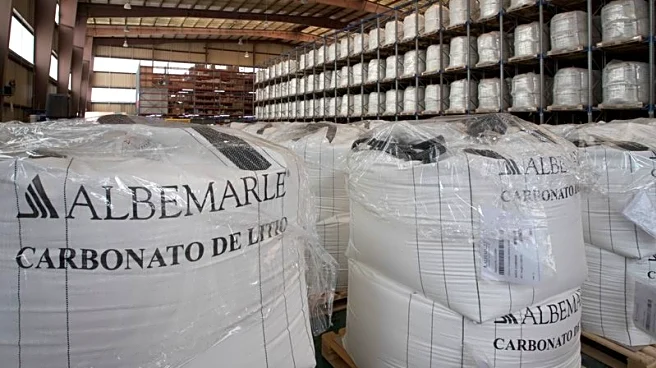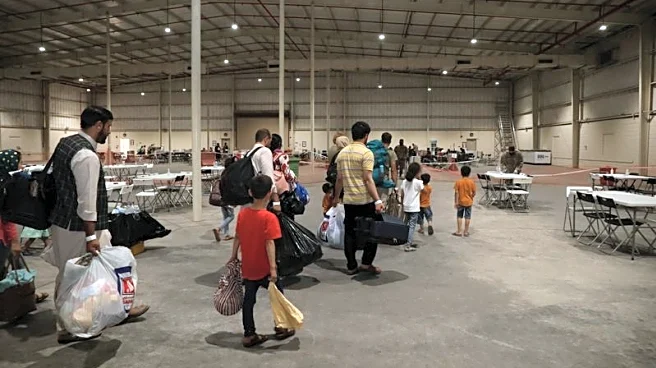What's Happening?
The Integrated Food Security Phase Classification (IPC) has reported that two regions in Sudan, el-Fasher in Darfur and Kadugli in South Kordofan, are experiencing famine conditions. This development is part
of a broader crisis in Sudan, where paramilitary forces, known as the Rapid Support Forces (RSF), have been engaged in a prolonged conflict with the military. The IPC warns that famine could spread to 20 other areas in Darfur and central Sudan's Kordofan region. The RSF has besieged these areas, cutting off food and supplies, leading to severe malnutrition and starvation. The conflict, ongoing since April 2023, has resulted in over 40,000 deaths and displaced more than 14 million people, according to the United Nations.
Why It's Important?
The famine in Sudan highlights a severe humanitarian crisis exacerbated by ongoing conflict. The situation poses significant challenges for international aid organizations and could lead to further instability in the region. The RSF's actions have not only caused immediate food shortages but have also disrupted livelihoods, leading to long-term economic and social consequences. The crisis underscores the urgent need for international intervention and support to prevent further loss of life and to address the root causes of the conflict. The humanitarian impact is profound, with millions facing acute food insecurity and malnutrition, which could have lasting effects on the population's health and development.
What's Next?
The IPC has called for a ceasefire as a critical step to prevent further deterioration of the situation. International organizations and governments may increase pressure on the conflicting parties to negotiate peace and allow humanitarian aid to reach affected areas. The focus will likely be on securing safe passage for aid workers and supplies to the most affected regions. Additionally, there may be efforts to address the underlying political and social issues fueling the conflict to ensure long-term stability and recovery in Sudan.
Beyond the Headlines
The crisis in Sudan raises ethical and legal questions about the responsibility of international actors in preventing and responding to man-made famines. The situation also highlights the challenges of delivering aid in conflict zones and the need for innovative solutions to reach those in need. The long-term implications for Sudan's development and regional stability are significant, as prolonged conflict and famine can lead to increased migration, further destabilizing neighboring countries.











